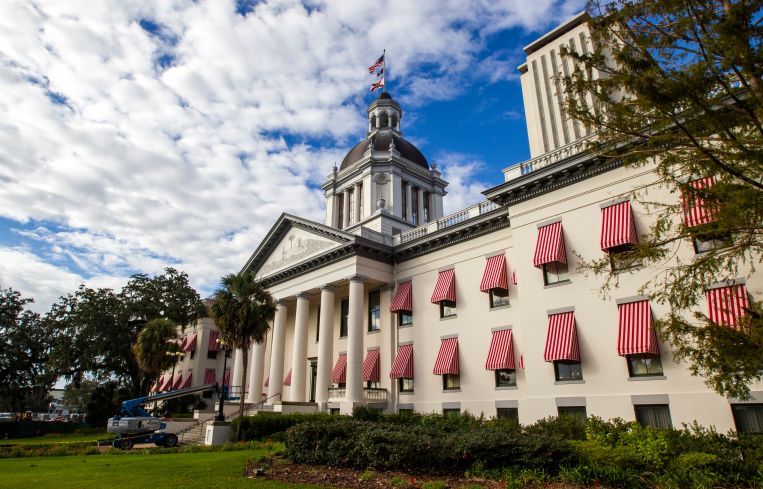Florida Senate Unveils Affordable Housing Bill With Incentives for Developers
The bill bans rent caps, eliminates regulation, and offers tax breaks for affordable development
By Julia Echikson January 27, 2023 5:18 pm
reprints
After two years of skyrocketing rents, Florida’s Senate President Kathleen Passidomo unveiled sweeping legislation to curb housing costs with a pro-development approach. The proposed bill seeks to boost funding and incentives for property owners to designate more units as affordable housing, while also banning rent controls.
Housing has “become a huge burden on our citizens and residents, and it’s something that we have to address,” Sen. Passidomo, a Republican representing the Naples area, said at a press conference Thursday.
Last year, South Florida and the Orlando area boasted the fattest rent growth in the nation, surging nearly 30 percent and a little over 20 percent respectively, according to data from Realtor.com. Coming on top of huge rent jumps in 2021, the ballooning housing costs have pushed out many low-earning residents in the hospitality industry, which Florida’s economy heavily relies on.
“We have great respect for the dignity of work. We know that a lower commute means a higher quality of life,” said the bill’s sponsor, Sen. Alexis Calatayud, a Republican representing southern Miami.
Dubbed the Live Local Act, the proposal would exempt developments constructed in the last five years from property taxes for each unit targeted at low- and middle-income families, if the property has at least 70 units that offer rents at least 10 percent below market rate. Another provision would allow municipalities and counties to spare property taxes for owners who allocate units for those earning 50 percent or less of the area median income.
The 93-page proposal also includes measures to increase the construction of affordable housing developments by easing the regulatory burden. For example, the bill would prevent local governments from requiring zoning changes for multifamily projects in commercial areas if at least 40 percent of units are set aside for households earning up to 120 percent of area’s median income. It would also require municipalities to provide listings of public land that may be available for affordable housing development.
The legislation “is the gas that’s thrown on the fire to begin resolving the housing crisis” thanks to its construction incentives, said Ken H. Johnson, a real estate economist working at Florida Atlantic University (FAU). But “it won’t be the total solution in and of itself.”
Solving a housing crisis during the peak of a market cycle is challenging because land, labor and materials tend to be at their most expensive, the professor explained. In the future, to prevent wild swings in rental prices, Johnson urged lawmakers to boost the development of affordable housing during a market downturn when the cost of building is cheaper, or at least ease the path to construction to quickly add more supply when rent prices tick up. These measures could include pre-permitting land.
The Live Local Act also caps local government’s ability to institute rent controls, a growing trend in the past year. Some Democrats have criticized the legislation for serving as a handout to developers and landlords, while not providing protections to renters. The bill “is very much trickle-down economics, which doesn’t always work,” state Rep. Anna Eskamani, a Democrat representing parts of Orlando, told WPTV. “This is a corporate giveaway solution.”
Another section of the bill calls for redirecting funding to affordable housing programs. Annually, the legislation would provide $252 million to the State Housing Initiatives Partnership program, $259 million to State Apartment Incentive Loan, and $100 million to the Hometown Heroes Housing Program.
But the move follows nearly two decades of lawmakers raiding similar initiatives. A 2021 report by the Florida Housing Coalition, a Tallahassee-based nonprofit, accused lawmakers of diverting about $2.2 billion from the Sadowski Trust Fund, meant for the development of affordable housing real estate, costing the state 166,000 in affordable units.
The bill will likely be amended as it moves through Florida’s House and Senate, but is likely to pass, given Republicans’ supermajority in Tallahassee. House Speaker Paul Renner and Gov. Ron DeSantis, both Republicans, have already voiced tentative support.
The proposal comes only a month after Tallahassee tackled another pressing housing issue: Florida’s cratering home insurance. In December, Gov. DeSantis signed into law legislation that essentially bailed out the industry after Hurricane Ian hit last fall. The storm’s recovery effort could become the state’s most expensive.
Julia Echikson can be reached at jechikson@commercialobserver.com.



